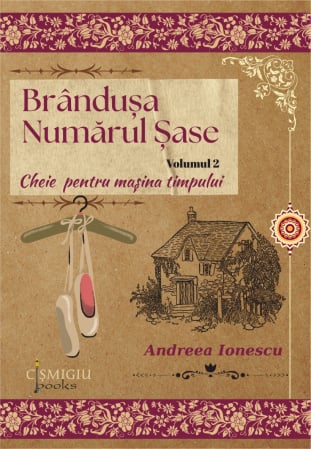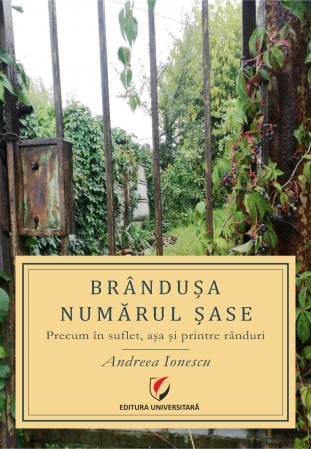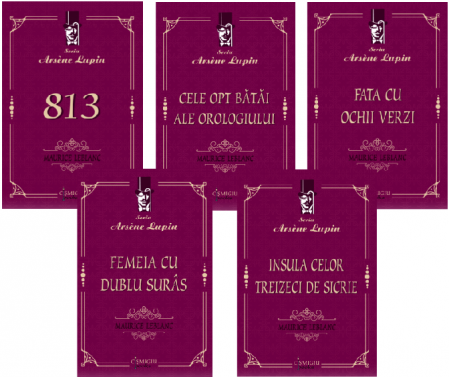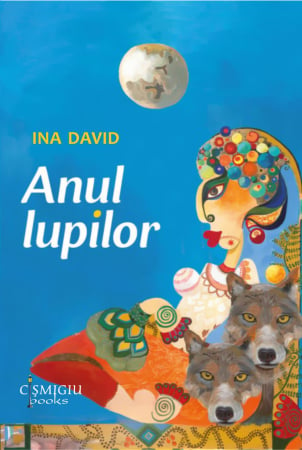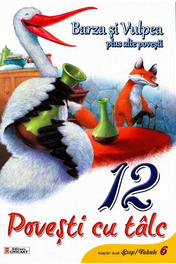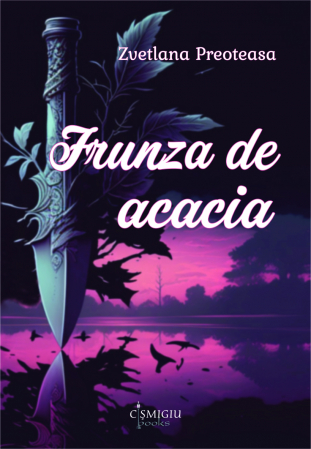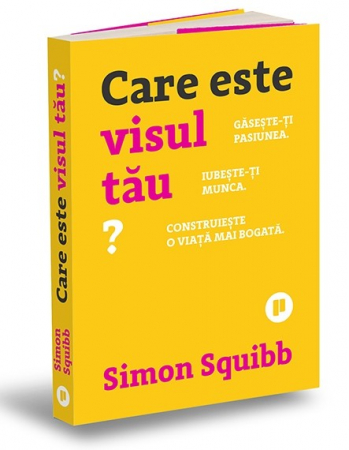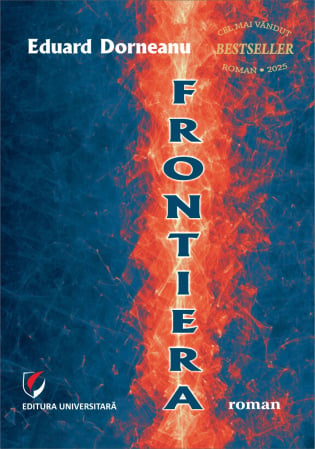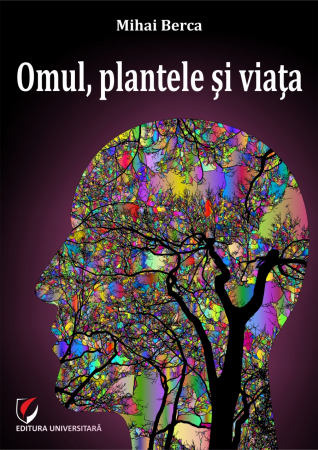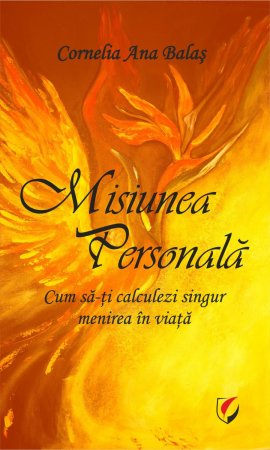Manuscript proposals: [email protected] / 0745 204 115 //// Tracking orders Individuals / Sales: 0745 200 357 / Orders Legal entities: 0721 722 783
ISBN: 978-606-28-1509-7
DOI: 10.5682/9786062815097
Publisher year: 2022
Edition: I
Pages: 350
Publisher: Editura Universitară
Author: Ovidiu Barsan
Product Code:
9786062815097
Do you need help?
0745 200 357
- Description
- Download (1)
- Authors
- More details
- Reviews (0)
When I started writing this book, I did not expect its atmosphere, its context, to be so current. 80 years ago, Romania experienced one of the greatest tragedies in its history: the military disaster at the Don Bend and the Calmuca Steppe.
The current novel follows the destinies of that generation, a defeated, abandoned generation, thrown far too easily into the dustbin of history, about which no one really wants to talk anymore.
The events in this book are an attempt to reconstruct and restore these destinies, to pay homage to the camaraderie, the almost useless sacrifice and the titanic attempt to preserve one's humanity, faith and love.
Ovidiu Barsan
The current novel follows the destinies of that generation, a defeated, abandoned generation, thrown far too easily into the dustbin of history, about which no one really wants to talk anymore.
The events in this book are an attempt to reconstruct and restore these destinies, to pay homage to the camaraderie, the almost useless sacrifice and the titanic attempt to preserve one's humanity, faith and love.
Ovidiu Barsan
-
The renegade diary
Download
OVIDIU BARSAN
Destiny in the tide of history in the novel Jurnalul renegatilor
Elena Netcu
In a world where unrest governs our lives, the testimonies about the war, the Romanian constructions that evoke the most devastating phenomenon of humanity, the war, seem to deepen and undermine our need for balance, harmony, peace, as a guarantee of understanding between people.
The assertion of the Moldovan chronicler, Miron Costin, how "man lives in the times" and must "not forget the facts of the past", is always current, because we are aware that the world is in a space full of violence and pain, and the courage to it refers us to this knowledge, not as victims, but as being part of a common traumatic history, it shows us that we cannot easily avoid the potentially tragic reality.
Any destiny, be it historical, social or political, is also covered by shadows, by dramatic trials, because life is like a spider's web exposed to violence, tensions of all kinds, losses, more or less painful experiences.
Having said that, we believe that it is necessary to understand the painful past in order to relate to the present full of trauma, with a kind of acceptance.
In this way, we must accept the disturbing book of the writer Ovidiu Barsan, Jurnalul renegatilor, published by the University Publishing House, Bucharest, 2022, joining a horizon of expectation, along with the reference war novels in Romanian literature, Padurea Spanzuratilor from Liviu Rebreanu, Last Night of Love, First Night of War, Camil Petrescu's emblematic novel, but, above all, Virgil Gheorghiu's novel Ora 25, written in exile, a masterpiece of the genre. The examples can go on.
Ovidiu Barsan is not the first book of this kind, his debut volume, Kara Golge, an extensive novel of historical evocation, reconstructing events from the era of Stefan the Great.
Although it is titled Jurnalul renegatilor, the novel cannot be read as a campaign diary, not being a confession about the war with the emotional involvement of the narrator, with marks of subjectivity, it does not imply the transposition into literary fact of some soul experiences lived on a battle front to the narrator.
The novel is structured in a sequence of chapters, following the evolution of the destinies of some Romanian soldiers during the Second World War, alongside the German army, then the Russian army, following their condition of "renegades" after the end of the war , around 1954.
The recounting of the war takes place kaleidoscopically, following a cinematographic technique, always changing the setting of the action, from the Kalmyk Steppe, to Siberia, to Bucharest, to Bacau, taking its heroes, sometimes to Modova, sometimes outside the borders, to Hungary, to Lvov and again in the country, in different cities. This change of setting is an argument of their condition as renegades, since after the end of the war, most of them do not find their peace, place and reconciliation with themselves, living the defeat as an unfair game of destiny. Moreover, the unfolding of the action on several temporal and spatial planes, give more dramatic tension to the facts, the author seems to inoculate us with the idea of the futility of a war that led to the destruction of innocent lives, to the disintegration of families, to the annulment of the human being in the conditions of the fight for survival, either in the camp, or by deserting or being exposed to the danger of being accused of treason.
Ovidiu Barsan captures with great evocative power the atmosphere of the war, but at the same time describes dramatic situations in which some soldiers lose their lives: "in the trenches you could hear laughter, swearing, screams of panic, prayers and what a mother!" said the heartbreaker" page 41).
The daily conversations between the soldiers are full of humor, the characters have something of the Moldavian slang, they seem to come from the writings of Ion Creanga, supporting the expression that in borderline situations, the Romanian knows how to make fun of trouble. "Nothing matters more than escaping from (...) the slaughterhouse", notes the narrator with some bitterness, from the "outside" narrative perspective, detached and objective, so an omniscient narrator.
Each chapter of the novel captures the pulsation of life, the hasty movements of the heroes, desperate gestures to complete any mission, even if, each time, one of them lost their life. Precipitous attacks, unpredictable traps, throw the soldiers' lives into an unmanageable mess. A characteristic of this writing is the capture of collective psychology. The author does not have in his artistic intention to individualize any destiny and, if he does, he sketches only through a few coughs, hypostatizing the fugitive character. Subsidiarily, the author seems to suggest that the war, with its face, not only destroys lives, but overturns ideals, turns professional or personal fulfillment out of the way, such as the fate of the Student, the son of a prosecutor, who does not find peace until he takes revenge for his father's sudden death. Others can no longer find their families, helplessly witnessing the ravages that the war brought to their lives, becoming, in the end, renegades of fate, despite their heroism.
Therefore, in order to give more tragic consistency to the collective drama of the Romanian people, the author focuses his writing by surprising the collective psychology, the soldiers go through a marathon of pain, under the killer bullets: "the earth is shaking. Everywhere columns of fire and earth shot up more and more ferociously...snow with shrapnel, boulders and pieces of broken bodies" (page 43).
The epic is of a heartbreaking drama. It is accentuated against the background of a terrible winter that somehow amplifies the suffering. An unfriendly winter, hard to endure, seems to accentuate the inability to face the situation and hard to overcome, such as the deportation to Siberia as prisoners of war, transported in a death train, in a terrible February frost. Even in the condition of prisoners, they had illusions that they would reach home, that they would no longer be exposed to bullets, that the war was over for them. They did not know that they were entering, without suspecting it, another convoy of death. "Some were digging, others were gathering the dead from the field...they were digging graves in the frozen ground...only the wails of the wounded could be heard, the sound of shovels on the frozen ground and, above all, a prayer said louder and louder, that a lament without tears and without end." (page 74) The cold of winter, hunger, disease, the fights under the deserted bed, all shortened their lives: "undressed, some looked like walking skeletons.... The cold and the cold water made some lose the fight with themselves ". (page 123)
While some of them fell prisoners, others fought in the Crimea, enduring the carnage triggered by the attack of the planes, seeing the dead thrown into the sea during the night. With the best of intentions, the colonel loads three thousand soldiers into two ships, but the planes pounce on one which sinks in less than a quarter of an hour. The offensive or defensive battles turned out to be, in the end, hell on land or on water. Scenes of this kind are frequently described in the novel, the author seems to emphasize the absurdity of the war that reaped, mercilessly, the lives of the soldiers, while the survivors carry their soul wounds many years after the war. We discover in the novel mutilated souls, dragged into a useless massacre by the vain ambitions of the great powers. This seems to be the message of the book. Ovidiu Barsan has the merit of describing with a heartbreaking drama the struggle for survival, the hopelessness and the sense of futility of the heroic gestures made by the Romanian soldiers, carried into the unknown, in a senseless marathon of despair and superhuman effort for survival.
Those who wandered through the world, carried by the rollercoaster of history, the "renegades" of Ovidiu Barsan live with deep disappointment a feeling of uprooting, of losing their bearings in a world in which nothing can be done, in which nothing can be done fix nothing.
As the author himself testifies, the message of the book is, among other things, the reconstruction of a not too distant past, to find out that man, in extreme situations, proves his "humanity, faith and love".
We believe that Jurnalul renegatilor remains a novel of great epic density, of a strong power of evocation and, last but not least, a novel-testimony through which we are not allowed to forget the past which, willingly or unwillingly, is part of our lives; through it we explain the present and the future that will come, under the hope that the world can be better, that it is in our power to change, to fight for a better world, precisely having as an example the sacrifice of our heroes.
Elena Netcu
In a world where unrest governs our lives, the testimonies about the war, the Romanian constructions that evoke the most devastating phenomenon of humanity, the war, seem to deepen and undermine our need for balance, harmony, peace, as a guarantee of understanding between people.
The assertion of the Moldovan chronicler, Miron Costin, how "man lives in the times" and must "not forget the facts of the past", is always current, because we are aware that the world is in a space full of violence and pain, and the courage to it refers us to this knowledge, not as victims, but as being part of a common traumatic history, it shows us that we cannot easily avoid the potentially tragic reality.
Any destiny, be it historical, social or political, is also covered by shadows, by dramatic trials, because life is like a spider's web exposed to violence, tensions of all kinds, losses, more or less painful experiences.
Having said that, we believe that it is necessary to understand the painful past in order to relate to the present full of trauma, with a kind of acceptance.
In this way, we must accept the disturbing book of the writer Ovidiu Barsan, Jurnalul renegatilor, published by the University Publishing House, Bucharest, 2022, joining a horizon of expectation, along with the reference war novels in Romanian literature, Padurea Spanzuratilor from Liviu Rebreanu, Last Night of Love, First Night of War, Camil Petrescu's emblematic novel, but, above all, Virgil Gheorghiu's novel Ora 25, written in exile, a masterpiece of the genre. The examples can go on.
Ovidiu Barsan is not the first book of this kind, his debut volume, Kara Golge, an extensive novel of historical evocation, reconstructing events from the era of Stefan the Great.
Although it is titled Jurnalul renegatilor, the novel cannot be read as a campaign diary, not being a confession about the war with the emotional involvement of the narrator, with marks of subjectivity, it does not imply the transposition into literary fact of some soul experiences lived on a battle front to the narrator.
The novel is structured in a sequence of chapters, following the evolution of the destinies of some Romanian soldiers during the Second World War, alongside the German army, then the Russian army, following their condition of "renegades" after the end of the war , around 1954.
The recounting of the war takes place kaleidoscopically, following a cinematographic technique, always changing the setting of the action, from the Kalmyk Steppe, to Siberia, to Bucharest, to Bacau, taking its heroes, sometimes to Modova, sometimes outside the borders, to Hungary, to Lvov and again in the country, in different cities. This change of setting is an argument of their condition as renegades, since after the end of the war, most of them do not find their peace, place and reconciliation with themselves, living the defeat as an unfair game of destiny. Moreover, the unfolding of the action on several temporal and spatial planes, give more dramatic tension to the facts, the author seems to inoculate us with the idea of the futility of a war that led to the destruction of innocent lives, to the disintegration of families, to the annulment of the human being in the conditions of the fight for survival, either in the camp, or by deserting or being exposed to the danger of being accused of treason.
Ovidiu Barsan captures with great evocative power the atmosphere of the war, but at the same time describes dramatic situations in which some soldiers lose their lives: "in the trenches you could hear laughter, swearing, screams of panic, prayers and what a mother!" said the heartbreaker" page 41).
The daily conversations between the soldiers are full of humor, the characters have something of the Moldavian slang, they seem to come from the writings of Ion Creanga, supporting the expression that in borderline situations, the Romanian knows how to make fun of trouble. "Nothing matters more than escaping from (...) the slaughterhouse", notes the narrator with some bitterness, from the "outside" narrative perspective, detached and objective, so an omniscient narrator.
Each chapter of the novel captures the pulsation of life, the hasty movements of the heroes, desperate gestures to complete any mission, even if, each time, one of them lost their life. Precipitous attacks, unpredictable traps, throw the soldiers' lives into an unmanageable mess. A characteristic of this writing is the capture of collective psychology. The author does not have in his artistic intention to individualize any destiny and, if he does, he sketches only through a few coughs, hypostatizing the fugitive character. Subsidiarily, the author seems to suggest that the war, with its face, not only destroys lives, but overturns ideals, turns professional or personal fulfillment out of the way, such as the fate of the Student, the son of a prosecutor, who does not find peace until he takes revenge for his father's sudden death. Others can no longer find their families, helplessly witnessing the ravages that the war brought to their lives, becoming, in the end, renegades of fate, despite their heroism.
Therefore, in order to give more tragic consistency to the collective drama of the Romanian people, the author focuses his writing by surprising the collective psychology, the soldiers go through a marathon of pain, under the killer bullets: "the earth is shaking. Everywhere columns of fire and earth shot up more and more ferociously...snow with shrapnel, boulders and pieces of broken bodies" (page 43).
The epic is of a heartbreaking drama. It is accentuated against the background of a terrible winter that somehow amplifies the suffering. An unfriendly winter, hard to endure, seems to accentuate the inability to face the situation and hard to overcome, such as the deportation to Siberia as prisoners of war, transported in a death train, in a terrible February frost. Even in the condition of prisoners, they had illusions that they would reach home, that they would no longer be exposed to bullets, that the war was over for them. They did not know that they were entering, without suspecting it, another convoy of death. "Some were digging, others were gathering the dead from the field...they were digging graves in the frozen ground...only the wails of the wounded could be heard, the sound of shovels on the frozen ground and, above all, a prayer said louder and louder, that a lament without tears and without end." (page 74) The cold of winter, hunger, disease, the fights under the deserted bed, all shortened their lives: "undressed, some looked like walking skeletons.... The cold and the cold water made some lose the fight with themselves ". (page 123)
While some of them fell prisoners, others fought in the Crimea, enduring the carnage triggered by the attack of the planes, seeing the dead thrown into the sea during the night. With the best of intentions, the colonel loads three thousand soldiers into two ships, but the planes pounce on one which sinks in less than a quarter of an hour. The offensive or defensive battles turned out to be, in the end, hell on land or on water. Scenes of this kind are frequently described in the novel, the author seems to emphasize the absurdity of the war that reaped, mercilessly, the lives of the soldiers, while the survivors carry their soul wounds many years after the war. We discover in the novel mutilated souls, dragged into a useless massacre by the vain ambitions of the great powers. This seems to be the message of the book. Ovidiu Barsan has the merit of describing with a heartbreaking drama the struggle for survival, the hopelessness and the sense of futility of the heroic gestures made by the Romanian soldiers, carried into the unknown, in a senseless marathon of despair and superhuman effort for survival.
Those who wandered through the world, carried by the rollercoaster of history, the "renegades" of Ovidiu Barsan live with deep disappointment a feeling of uprooting, of losing their bearings in a world in which nothing can be done, in which nothing can be done fix nothing.
As the author himself testifies, the message of the book is, among other things, the reconstruction of a not too distant past, to find out that man, in extreme situations, proves his "humanity, faith and love".
We believe that Jurnalul renegatilor remains a novel of great epic density, of a strong power of evocation and, last but not least, a novel-testimony through which we are not allowed to forget the past which, willingly or unwillingly, is part of our lives; through it we explain the present and the future that will come, under the hope that the world can be better, that it is in our power to change, to fight for a better world, precisely having as an example the sacrifice of our heroes.
If you want to express your opinion about this product you can add a review.
write a review

6359.png)
![The renegade diary - Ovidiu Barsan [1] The renegade diary - Ovidiu Barsan [1]](https://gomagcdn.ro/domains/editurauniversitara.ro/files/product/large/jurnalul-renegatilor-601225.jpg)
